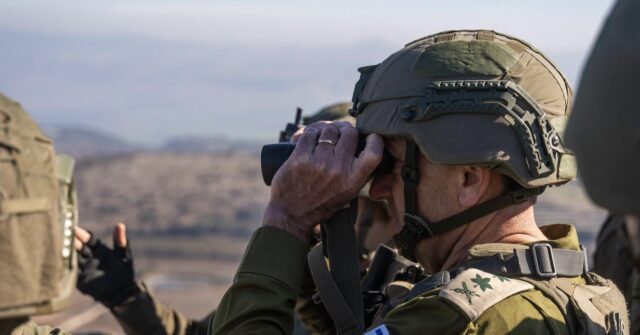The fragile ceasefire in Lebanon, which had only been in effect for five days, faced a significant threat following an incident involving Hezbollah’s rocket attacks on Israel. The Israeli Defense Forces (IDF) reported that on Monday, two rockets were fired at Har Dov, a strategic mountaintop that remains contested by Hezbollah, which claims it as part of Lebanon despite no international recognition of this assertion. This escalation occurred in the wake of controversial claims made by the Biden-Harris administration, which stated that Israeli surveillance drones had violated the ceasefire agreement. However, reports indicated that these drone flights did not breach the terms of the agreement, which permits each side to engage in self-defense activities.
The Biden-Harris administration’s alignment with international perspectives—specifically siding with France, which holds an anti-Israel stance and has historical claims over Lebanon—was perceived as a demonstration of weakness. This approach inadvertently encouraged Hezbollah to challenge Israel’s authority in the region. Following the U.S. claims, Hezbollah’s decision to launch rockets towards Har Dov was viewed as a significant provocation and a test of Israel’s military resolve. In response, Israel retaliated with artillery strikes on Hezbollah positions in southern Lebanon, indicating that its military was prepared to address any breaches of the ceasefire aggressively.
Israeli Prime Minister Benjamin Netanyahu publicly condemned Hezbollah’s actions as a severe violation of the ceasefire, stating that Israel would respond decisively. The IDF’s Chief of Staff, Lt. Gen. Herzi Halevi, echoed this sentiment, asserting that plans were already in place to respond to Hezbollah’s provocations. This firmly established Israel’s commitment to protecting its sovereignty and responding to any military threats emphatically. The renewed hostilities highlighted the precarious nature of the ceasefire and the complex dynamics between regional powers and their respective military factions.
Despite the evident escalation of tensions, reports suggested that the Pentagon maintained that the ceasefire agreement remained intact in Lebanon as of Monday evening. The Israeli air force took immediate action following Hezbollah’s attacks, conducting strikes against various Hezbollah military assets across southern Lebanon. This included targeting missile launchers and other infrastructures used by the militant group, emphasizing Israel’s determination to uphold its security and retaliate against threats.
The IDF reiterated its expectations that both Hezbollah and other relevant parties within Lebanon must take measures to prevent hostile activities originating from Lebanese territory. The ongoing situation illustrates the challenge of maintaining peace in a region rife with historical animosities and power struggles, especially in light of Hezbollah’s aggressive posture emboldened by perceived international support.
As tensions persist, Israel’s military is poised for continual operations to defend its civilian population and address security threats. The situation remains fluid, and the commitment from both military and governmental leaders suggests that further confrontations may develop if provocations continue. The evolving dynamics exemplify the delicate balance of power in the region and the pivotal role of international diplomatic ties in shaping the outcomes of such conflicts.

